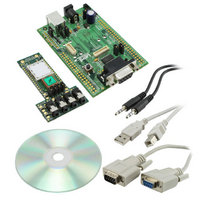DVK-BTM521 Laird Technologies, DVK-BTM521 Datasheet - Page 89

DVK-BTM521
Manufacturer Part Number
DVK-BTM521
Description
BT MM DEV KIT
Manufacturer
Laird Technologies
Type
Transceiver, Bluetoothr
Specifications of DVK-BTM521
Frequency
2.4GHz
Interface Type
RS-232
Processor Series
BTM521
Silicon Manufacturer
Laird Technologies
Kit Application Type
Communication & Networking
Application Sub Type
Bluetooth
Kit Contents
Development Board & Software Tools
Features
Supports CSR
Rohs Compliant
Yes
For Use With/related Products
BTM521
Lead Free Status / RoHS Status
Lead free / RoHS Compliant
Lead Free Status / RoHS Status
Lead free / RoHS Compliant, Lead free / RoHS Compliant
Other names
DVK-BTM521
Available stocks
Company
Part Number
Manufacturer
Quantity
Price
Company:
Part Number:
DVK-BTM521-01
Manufacturer:
LAIRD
Quantity:
7
BTM520/521
Bluetooth
AT COMMAND SET
REFERENCE
89 www.lairdtech.com
®
Multimedia Plus Module
2. Link Key Management
1.1 SCO / eSCO Asynchronous Messages
On a BTM device, link keys are managed by the AT firmware. Appropriate AT commands are described
on page 26. There is a range of S Registers defining the behavior of automatic link key storage on
incoming/outgoing and dedicated/general bonding.
2.1 Dedicated Bonding
2.2 General Bonding
2.3 Automatic Storage of Link Keys
The following asynchronous messages apply to SCO/eSCO connections.
AUDIO ON (SCO)
This response is sent to the host when a SCO channel has been established.
AUDIO ON (eSCO)
This response is sent to the host when a eSCO channel has been established.
AUDIO OFF
This response is sent to the host when an existing SCO/eSCO channel has been closed.
AUDIO FAIL
This response is sent to the host when a SCO channel setup fails. This might be caused by the fact
that the peer only accepts eSCO connections but a SCO connection was requested or vice versa.
Please try to initiate the SCO connection with the remaining link type.
In BT2.1 specification, “dedicated bonding” is defined as the exchange of link keys between two
devices without the intention of establishing a connection immediately.
Dedicated bonding is initiated by “AT+BTW<BdAddr>” (initiation of pairing).
In BT2.1 specification, “general bonding” is defined as the exchange of link keys between two
devices with the intention of establishing a connection immediately. This is the case if a device
tries to connect to another device without an existing link key. Hence, pairing (authentication and
exchange of link keys) is initiated automatically prior to the connection.
General bonding is initiated by a connection requesting AT command if there is no link key for
the peer device existing. Such AT commands are:
“AT+SPD<BdAddr>”, “AT+APD<BdAddr>”, “AT+AVD<BdAddr>”, ”AT+HSD<BdAddr>”,
“AT+HSGD<BdAddr>”, “AT+HFD<BdAddr>”, “AT+HFGD<BdAddr>”, “AT+DUD<BdAddr>”
Four S Registers define the automatic storage of link keys in the trusted device list, depending on
incoming/outgoing and general/dedicated bonding. Please see Table 3.46.
Task
Automatic link key storage on
dedicated bonding outgoing (DBO)
Automatic link key storage on
general bonding outgoing (GBO)
Automatic link key storage on
dedicated bonding incoming (DBI)
Automatic link key storage on
general bonding incoming (GBI)
Table 3.46: Automatic storage of link keys
S-Register
S325 [0..1]
S326 [0..1]
S327 [0..1]
S328 [0..1]
Comment
0 = do not store (cache only)
1 = store automatically (default)
identical with S538
0 = do not store (cache only)
1 = store automatically (default)
0 = do not store (cache only)
1 = store automatically (default)
0 = do not store (cache only)
1 = store automatically (default)
Laird Technologies



















